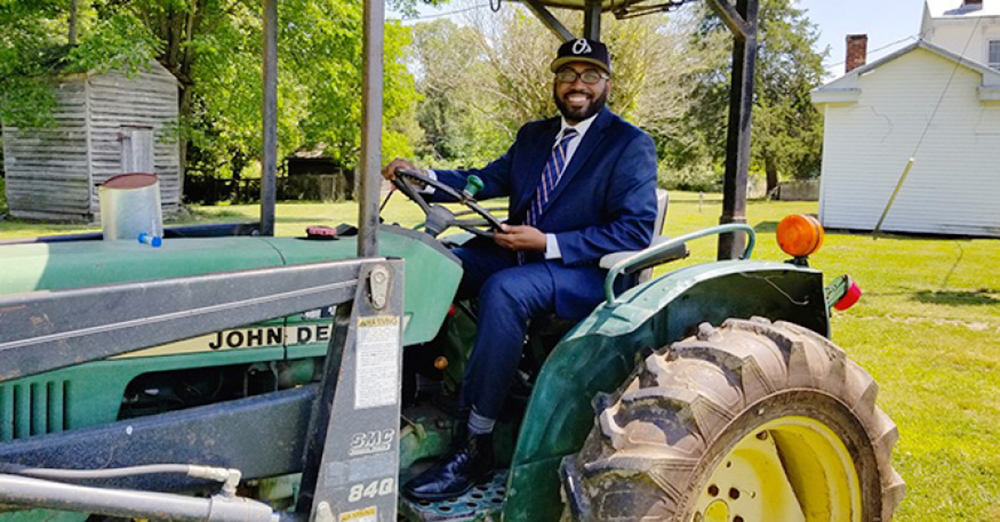By Eugene Cho, President/CEO, Bread for the World
Rev. Dr. Heber M. Brown III, the senior pastor of Pleasant Hope Baptist Church in Baltimore, Maryland, would not have expected the food system in the community to play such a large role in his ministry. But when he joined Pleasant Hope in 2010, he soon found himself praying with ailing members of the church beside their hospital beds.
Diabetes and other chronic conditions related to the food system were common among Pleasant Hope members who were mostly Black seniors. Their conversations reminded him of his grandparents—most were too proud to admit that they couldn’t afford healthy food or were able to travel outside the neighborhood to stores that carried a wider variety of foods.
At first, Brown was at a loss as to what to do. Baltimore had a number of food charities, but his people were not looking for charity. As he was walking up the front steps of the church, he passed the modest-sized lawn and it occurred to him—why not plant a garden?
Except he didn’t know anything about gardening. But there were members of the church who did, like the octogenarian Sister Maxine Nichols, who had grown up on farms in the rural South before coming to Baltimore more than half a century ago.
The scarcity of healthy, affordable food outlets is not unique to the neighborhood around Pleasant Hope church or to the city of Baltimore. Food deserts are omnipresent in urban communities of color in the United States, a consequence of decades of disinvestment. Rev. Brown thinks of food desert as a misnomer: he prefers to describe the condition as “food apartheid.”
Sister Maxine Nicholas and others taught him how to work the land, and the garden they planted provided members of the church with fresh foods that were rarely ever seen in the neighborhood. Soon other churches in the city were reaching out to him for help.
In 2015, Rev. Brown founded the Black Church Food Security Network, aiming to build an alternative food system in communities around Baltimore without grocery stores, mainly using fresh produce grown in gardens on church properties. Today, 12 Baltimore churches are part of the network, and their local initiative has inspired similar church-led efforts in other areas of the country.
The Black Church Food Security Network also works with Black farmers to help supply food for sale in urban areas. In 2020, the Black Church Supported Agriculture Program was an outlet for farmers whose markets had shrunk or vanished due to COVID-19.
For as long as there have been Black churches, they have been indispensable to their community food systems, spanning farm to fork. “I grew up in an all-Black community, where we didn’t own the infrastructure,” said Cornelius Blanding, executive director the Federation of Southern Cooperatives, a grassroots farmer organization founded during the Civil Rights Movement. “We didn’t own the businesses. We rented the housing. The only thing that was owned historically – in most of the communities, and especially the community I come from – was the church.”i
And the churches stepped up, as they’ve been doing all along.
A food justice movement in the United States is on the rise, and it owes much of its dynamism to faith-based communities of color who have never been content to wait for someone else to fix the broken food system.


